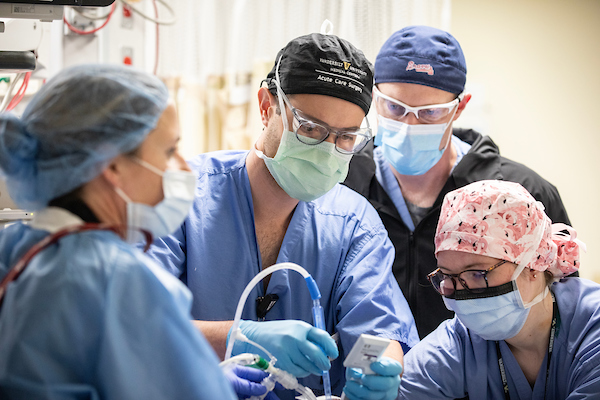
Vanderbilt University Medical Center has already treated nearly 50 victims of all-terrain vehicle (ATV) accidents in 2017, a number that has medical providers concerned, considering summer – the peak of trauma season – has not even begun.
Each year as the temperature rises, the reported number of ATV-related incidents rises. So far this year, Vanderbilt University Adult Hospital has treated 34 adult victims, and Monroe Carell Jr. Children’s Hospital at Vanderbilt has seen 14 pediatric patients due to ATV accidents.
In both adult and pediatric patients, many of the injuries seen are due to lack of helmet safety while riding.
“Two common things we see with our ATV trauma admissions are that they are not wearing helmets and they are either carrying passengers or are a passenger themselves. Both scenarios can result in serious injuries,” said Purnima Unni, MPH, CHES, Pediatric Trauma Injury Prevention Program Manager. “Many ATV injuries are head injuries. Wearing a helmet may reduce the severity of these injuries.”
Children are especially prone to ATV injuries because of their lack of experience operating motorized vehicles, lack of psychomotor control and coordination, and lack of judgment that can result in risk-taking behavior and poor decision-making skills.
Children’s Hospital fully supports recommendations by the American Academy of Pediatrics (AAP) and the American College of Surgeons (ACS) that children 16 and under should not ride ATVs due to the high risk of serious injuries. However, if parents allow their child to ride an ATV despite the known risk that these vehicles pose to children, the following safety measures are strongly recommended:
- Always wear protective gear – especially a helmet – when riding ATVs. Head injuries are by far the leading cause of death and disability related to ATV crashes. Helmets are known to reduce head injuries by 85 percent. Wear a motorcycle or motorized sports helmet and make sure it is certified by the U.S. Department of Transportation or the Snell Memorial Foundation.
- Avoid driving ATVs with a passenger or riding as a passenger. The majority of ATVs are designed to carry only one person.
- Take a hands-on safety training course if one is available in your area.
- Do not drive ATVs on paved roads because they are difficult to control. Collisions with cars and other vehicles can be deadly.
- Do not permit children to drive or ride adult ATVs. Children are involved in about one-third of all ATV-related deaths and hospital emergency room injuries. Most of these deaths and injuries occur when a child is driving or riding on an adult ATV.
“Safe and sensible use of an ATV will prevent major injury,” said Oscar Guillamondegui, M.D., associate professor of Surgery and Trauma Medical Director. “Remember to wear a helmet, ride responsibly and maintain situational awareness. Most major trauma is the result of carelessness, intoxication and lack of helmet use.”











